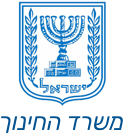The Farhud (Looting) was a series of riots, influenced by Nazism, against the Jews of Baghdad, Iraq. It took place on Shavuot, the 6th and 7th of Sivan (June 1-2, 1941).

I was there.
Like I was present at Mount Sinai
At the giving of the Torah
So I was at the Farhud,
In Baghdad in 1941
On the holiday of Shavuot 5701, I was there
I went out with my grandfather – who was still only a young father
My grandfather, Chacham (rabbi) Garji Yair
The Kai (Baghdadi Jewish food for Shavuot) that my grandmother, Najia, prepared
Became cold
And the green butter fat
Became solid and hardened
Just as their blood clotted
Of Suad and Ezra
And of the exilees in Babylon.
And my elderly man,
He was righteous
He was kind
And never came into troubles with his Creator
Continued on his silent way to the home of Chacham Yitzchak Darazi
The far out home in the Jewish neighbourhood
To arrange Slichot prayers and Elegies,
He confused the holiday of Shavuot with the 3 weeks (between the fasts of the 17th of Tammuz and the 9th of Av) and the High Holidays
In Baghdad of 1941
And on his way, he whispered to himself:
“I saw all this, and I applied my heart
To all the work that is done under the sun
A time that a man ruled over another man for his own harm” (Ecclesiastes 8:9)
(David Menachem, Jeruslaem 5774/2014)
The city of Baghdad, whose name means “Gift of God”, arose at the end of the eighth century in a green and fertile plain, on both banks of the Tigris river, which is mentioned in the Book of Genesis as one of the rivers of the Garden of Eden. The giant city excelled in magnificent architecture, and was a source of inspiration for many works of art. The members of the ancient Jewish community in Baghdad stood out in their diligence, talent, loyalty, and good neighborliness.
All this did not prevent the outbreak of the Farhud, the wave of brutality in which Iraqi nationalism, German Nazism, Muslim antisemitism, and British prejudice were unleashed.
On June 1st, 1941, the eve of Shavuot, the British occupied most of Iraq. A curfew was imposed on the cities of the country. In accordance with a strategic decision, British army forces camped at the gates of Baghdad and prevented entry into the city by land. They maintained their avoidance even when news arrived in real time about the massacre taking place in the city.
Masses of Muslims broke out of the mosques and filled the streets with batons, knives, and firearms in their hands. They broke into the Jewish homes and shops that had been marked the day before by military and police personnel. Jews who went to pray were attacked and murdered in the holy places.
The Muslims set out to attack the Jewish houses and businesses. They opened and stole what was there and destroyed what they could not take with them. They killed children and butchered men, and then resorted to stealing the furniture and contents of the homes and robbed the goods from the businesses.
The British, who were camped near what was happening, did not lift a finger. Some claimed that they preferred to channel the anger that had accumulated towards them, towards the Jews. According to the estimates, about two hundred people were murdered and were buried in a mass grave. Hundreds were injured and a thousand shops and homes were looted. The property damage is estimated at millions of dinars. After the fire died down, the British entered.







